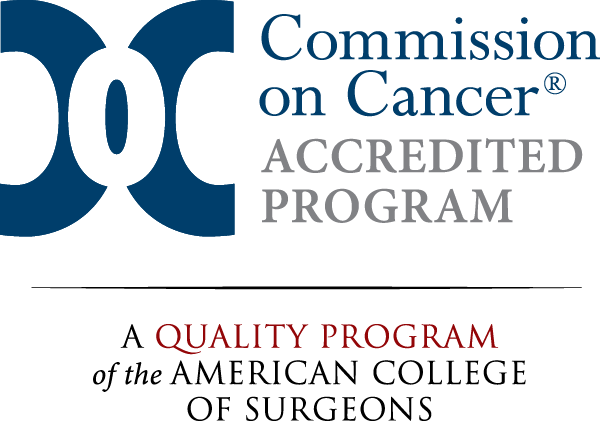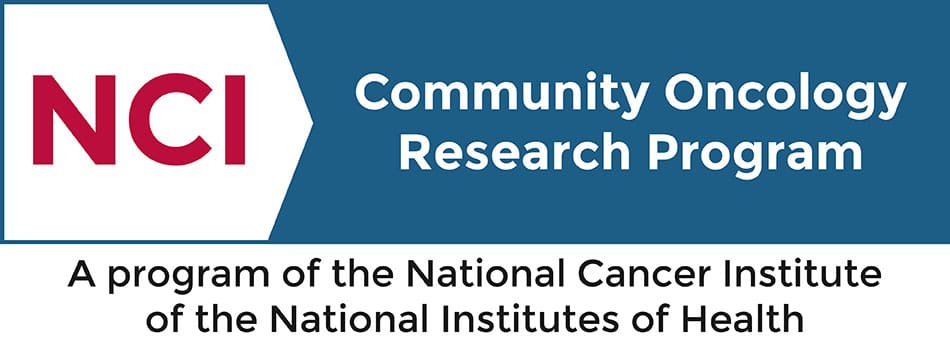- CANCER CARE
- Cancer Centers of Excellence
- Cancers We Treat
- Brain/Neuro Cancer
- Breast Cancer
- Colorectal Cancer
- Lung Cancer
- Prostate Cancer
- Bile Duct Cancer
- Bladder Cancer
- Bone Cancer
- Cervical Cancer
- Duodenal Cancer
- Esophageal Cancer
- Gallbladder Cancer
- Head and Neck Cancer
- Kidney Cancer
- Leukemia
- Liver Cancer
- Melanoma
- Multiple Myeloma
- Lymphoma
- Ovarian Cancer
- Pancreatic Cancer
- Rectal Cancer
- Soft Tissue/Sarcoma
- Small Intestine Cancer
- Stomach Cancer
- Thyroid Cancer
- Uterine Cancer
- Vaginal Cancer
- Vulvar Cancer
- Testicular Cancer
- Cancer Treatment Options
- Cancer Support Services
- Fertility Program
- Nurse/Patient Navigators
- Nutrition Counseling
- Supportive Care and Services
- Lymphedema Management Program
- Quit Smoking Program
- Oncology Social Work
- Support Groups
- Survivorship Program
- Wellness Programs
- Community Resources
- Lung Navigation Program
- Breast Health Navigation Program
- Gastrointestinal (GI) Cancer Navigation Program
- Gynecological Oncology Navigation Program
- Hospice Service
- Cancer Genetics Program
- Cancer Centers of Excellence
- Cancers We Treat
- Brain/Neuro Cancer
- Breast Cancer
- Colorectal Cancer
- Lung Cancer
- Prostate Cancer
- Bile Duct Cancer
- Bladder Cancer
- Bone Cancer
- Cervical Cancer
- Duodenal Cancer
- Esophageal Cancer
- Gallbladder Cancer
- Head and Neck Cancer
- Kidney Cancer
- Leukemia
- Liver Cancer
- Melanoma
- Multiple Myeloma
- Lymphoma
- Ovarian Cancer
- Pancreatic Cancer
- Rectal Cancer
- Soft Tissue/Sarcoma
- Small Intestine Cancer
- Stomach Cancer
- Thyroid Cancer
- Uterine Cancer
- Vaginal Cancer
- Vulvar Cancer
- Testicular Cancer
- Cancer Treatment Options
- Cancer Support Services
- Fertility Program
- Nurse/Patient Navigators
- Nutrition Counseling
- Supportive Care and Services
- Lymphedema Management Program
- Quit Smoking Program
- Oncology Social Work
- Support Groups
- Survivorship Program
- Wellness Programs
- Community Resources
- Lung Navigation Program
- Breast Health Navigation Program
- Gastrointestinal (GI) Cancer Navigation Program
- Gynecological Oncology Navigation Program
- Hospice Service
- Cancer Genetics Program
Cancer Treatment Options
Treatment designed for your specific type of cancer.
There are, broadly speaking, three types of treatment you may receive for your cancer. You may experience only one of them, some of them, or you may experience all of them. It all depends on the nature of your cancer and the treatment that you and your doctor think is best.
Medical oncology – is medicine that goes into your bloodstream intravenously or via pill, and seeks out the cancer where ever it may have spread in your body. Chemotherapy is an example of this. Learn more about our Infusion Center.
Radiation oncology – uses very sophisticated machines to send high beam radiation that pinpoints key areas of your body where the cancer was or is.
Surgical oncology – this is where the doctor goes in and physically removes the tumor or cancer from your body.
And while these are the main types of treatment, every day clinical trials and research that we are performing right here at Capital Health are developing new ways to better address cancer for patients just like you.

